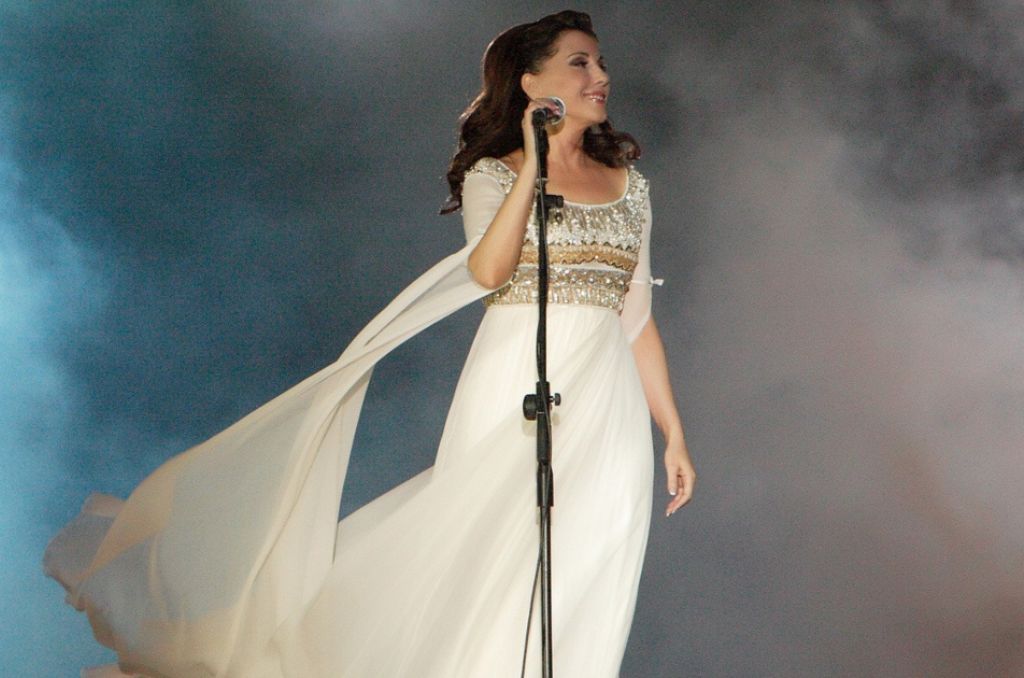
The world news never takes a break away from the Middle East. With the wave of revolution and violence that has engulfed the Middle East within the last several years, each one of the 16 countries in the region, some more than others, takes its turn appearing in headlines.
Reading and hearing the world news, one would wonder whether countries like Lebanon have always dealt with chaotic circumstances. I am in a position to say “no.”
The Middle East is not all about war, violence, bloodshed, and the conflict between Israel and Palestine. A country like Lebanon is home to a renowned modern singer named Majda El Rumi.
Before Majida, now 63, the Arab world enjoyed such singers as Fairuz, Umm Kulthum and Abdul Wahhab, who were the beloved voices of the people. When their voice was heard it brought pleasure to the listeners of Arab music.
Yet, at 21 Majida El Rumi was so well-known that no one could exclude her from the list of the best singers of the region. Those who have felt the magical rhythm of Arabic poetry and who gravitated towards great poets from the 1950s in the Arab capitals of Lebanon, Cairo, and Damascus, and whose names are well-known; Majida chose to sing the poems of one of the greatest of them: Nizar Qabbani.
The poems of Nizar Qabbani include “Beirut: The Bride of the World,” “Kalamat,” and “Ma al-Jaridah.” These became Majida El Rumi’s three most beautiful songs.
Although Majida was much younger than the generation of Umm Kulthum, Abdul Wahhab, Fairuz, and Abdul Halim Hafiz, she was always recognized as one of the foremost singers of the Arab world, especially to the people for whom music meant Arab unity and had an important place in their heart.
Majida wasn’t the only Arab singer voicing her disgust against the war and conflict in the Middle East. Roger Waters, in a song entitled “Leaving Beirut,” kindly remembered the people of Beirut who share their bread with their guests, as well as their hearts.
Arab poets have mentioned Beirut in many of their poems. Perhaps the poem of Nizar Qabbani about Beirut is the most beautiful of these and Majida has beautifully sung the song.
The lyrics are alluring, full of mysterious feelings and romance including the totality of the beauty of Arab poetry. Besides that, the performance of the lyrics resonates with the high and low of the music.
As for Majida, her unique singing style causes the listener to imagine that the poem of Nizar Qabbani was made for the voice of Majida El Rumi, where music, poetry, and emotions dance together in her voice.
Only artists like Majida can portray a different picture of the Middle East. The picture can exude beauty, gentleness, humanity and ecstasy of the rich cultures in the Middle East. Perhaps, the picture Majida El Rumi paints a picture which is drastically different from that painted by headlines about the ISIS brutality and inhumane behavior.
Please Pledge to Our Peace Journalism.
Goltune is editorially independent. We set our agenda. No one edits our editors. No one steers our opinion. This is important as it enables us to stay true to our values.
Every contribution we receive from readers like you, big or small, goes directly into funding our journalism. Please support Goltune, large or small.
Send your contributions to our PayPal account: [email protected]
Or, Click the link to pledge your support.
Thank you,
Goltune Editorial Team






